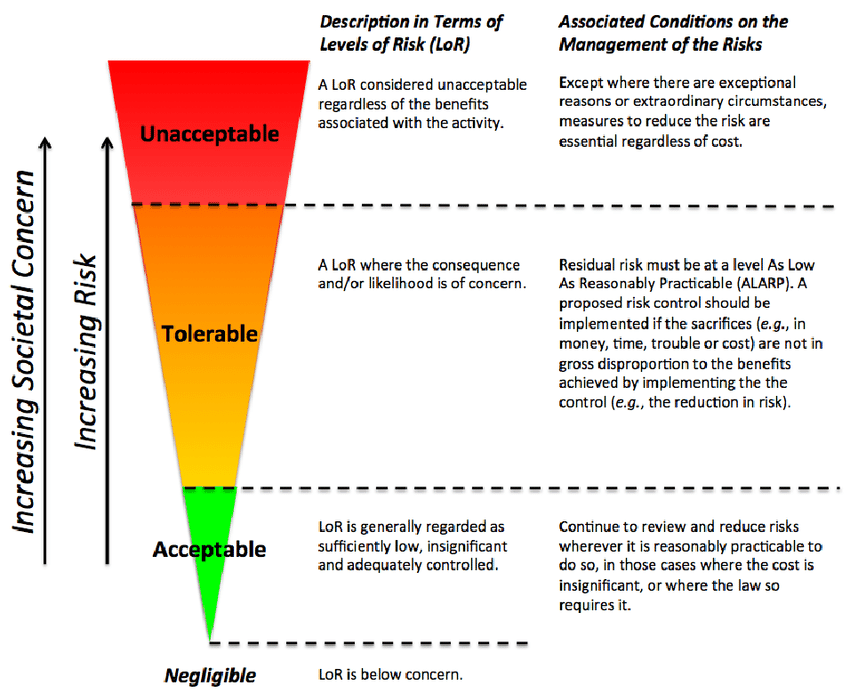ALARP is a regulation and management principle for safety-critical and safety-involved systems which is a common practice of judgement of the balance of risk and societal benefit.
The basic principle is that residual risk should be reduced to the greatest extent and as far as reasonably possible. It is the equivalent to SFAIRP in UK and NZ health and safety law.
To qualify as ALARP, a risk must be able to show that the cost of further reducing the risk would be excessively disproportionate to the benefit achieved. The ALARP concept stems from the notion that an endless amount of time, effort, and money may be spent attempting to reduce a risk to zero, rather than the fact that halving the risk would take a finite amount of time, effort, and money.

